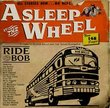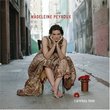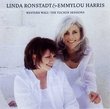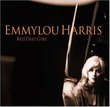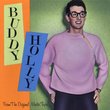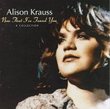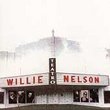| All Artists: Bob Wills Title: Essential 1935-1947 Members Wishing: 3 Total Copies: 0 Label: Sony Original Release Date: 10/13/1992 Release Date: 10/13/1992 Genres: Country, Pop Styles: Classic Country, Western Swing, Singer-Songwriters Number of Discs: 1 SwapaCD Credits: 1 UPC: 074644895827 |
Search - Bob Wills :: Essential 1935-1947
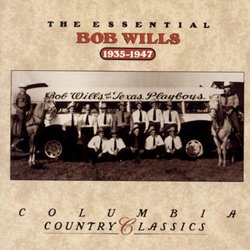 | Bob Wills Essential 1935-1947 Genres: Country, Pop
|
Larger Image |
CD DetailsSimilarly Requested CDs
|
CD ReviewsBob Wills is Still the King Tony Thomas | SUNNY ISLES BEACH, FL USA | 03/11/2004 (5 out of 5 stars) "This is a collection of recordings by the Texas Playboys band from around 1936 until around 1947, the years they recorded for Columbia and its various sub brands like Okeh. As such it shows the enormous diversity of the playboys over the years. Until around 1945, Wills fronted what was really two bands. One was a Western Swing combo includings fiddles and guitars, steel and one or two horns and rhythm. The other was a full scale big band with reed and brass section along with the Western Swing instruments. The big band played originals and stock arrangements written for big bands for big band top hits like In the Mood. Particularly during the mid 1930s, some Wills recordings were everything in between the full swing band and just fiddle and rhythm accompaniment. While he was quite faithful as long he recorded to the old ranch dance sounds he had grown up playing with his dad, Wills welcomed any kind of inovative music by his players. In the 1940s the band featured the Charlie Christian influenced guitar solos of Jimmy Wyble and Cameron Hill who went on to work for Spade Cooley and the near rock style hot metal blues guitar solos of Lester Bernard Junior. In the late 1940s and early 1950s Wills would use Tiny Moore and Johnny Gimble both on electric mandolin and fiddle who would take bebop influenced solos even though both were also great traditional fiddlers (In fact, it is Johnny Gimble, not Bob Wills, who is the main fiddle player on their great 1950s hit on the traditional Texas fiddle tune, "Faded Love" ) After WWII Wills dropped the big band and had a western swing combo with usually one horn either a trumpet or a sax, and rarely he had fiddler Louis Tierney double on sax along with the trumpet. The key instruments in the combo were usually a steel guitar, electric mandolin, and electric guitar section plus two or three fiddles, along with a rhythm section, although for a while in the 1950s, Wills had both an old Hawaiian Steel guitar AND one of the new pedal steels. The music here is great, terrific and wonderful. The playboys had fun. Current ideas about genre, especially sterotypes about country music have to be dropped. Wills's band did not consider themselves as part of country music, but as part of pop music and Jazz. They never had much to do with the Southeastern "Country Music" operation that was growing up around Nasheville. In fact in 1945 when the Playboys were the biggest grossing act in all popular music (bigger than Sinatra or Glenn Miller or Bing Crosby who actually had a big hit on Wills' San Antionio Rose and who performed withthe Playboys during WWII bond drives!) they were finally invited on the Grand Ole Opry. They almost left without performing when the Opry explained it didnt allow drums and horns, and Wills said he would leave if he had to do that.The Playbou image was originally associated with kind of "collegiate" a 1920's Jazz age image if you look at the photographs of the original Playboys in their "college" sweaters. They adopted the cowboy image only in the late 1930s when they began to perform in Western pictures. As a Black performer of blues among other things, I love Tommy Duncan's Blues singing and do several of his songs just as he does them, and get a great response from audiences when I do. The big problem is that Columbia keeps putting out these one records with some, but not all of the Wills stuff they recorded. If you buy these you end up with three or four recordings of the same tune. Wills is so good, that you will find you need it all. Seriously consider getting a bigger set, because you will need it all.As has been said this is just the Columbia stuff from 1936-1947. MGM put out a terrific collection of ALL THEIR recordings from 1947 to about 1953 called Boot Heel Drag. Also there are about 10 CDs of the tiffany transcriptions that Rounder has out. These were non commercial recordings the band made to be sold to radio stations along with commercials for a furniture company. They are all between around 1945 and 1949 and are looser, hotter, more informal and include more pop and jazz material than what was issued by Columbia or MGM.Finally there is For the Last Time, the only reunion done of the old band with Bob. Bob fell into a comma that he never recovered from during the session and there was even more emotion in the playing on that Album.Bob Will's shouting and hollering is part of the act. As has been said it comes out of the old minstrel shows, but also is much like what you would have heard from a lot of the black jazz men of the 1920s especially Louis Armstrong. It gave a special push to his soloists. Also at a time when most band leaders had no regard for the career of band members, Wills' calls of the names of his performers made them stars in their own right and glorified the instrumental excellence of their solos.In fact, Bob's call to Leon McAuliffe "take it away leon" became a stock phrase in the whole US population in the 1940s and 1950s.Bob Wills is still the King" Where's the Beef? chingiz | 10/28/2003 (3 out of 5 stars) "No real knock on this collection, it was actually a nice little introduction to Bob Wills. However, you'd be doing yourself a favor spending $10 more and getting 3 more discs and a hundred more songs on the newly released, "Take Me Back To Tulsa" Boxed Set." THERE AIN'T NOBODY QUITE LAK' GOOD OLE BOB WILLS Anton Garcia Fernandez | Vigo, Spain | 01/18/2001 (5 out of 5 stars) "It was not until the mid-90's that I heard about Bob Wills and a certain country genre known as Western Swing. I liked the description about the music that I'd read on a book and soon found me trying to track this CD down - without any previous listening! Well, right after I listened to it for the first time, I became a crazy fan of both Wills and Western Swing. I think this CD is the best introduction to his early Columbia sides available nowadays. It features almost all of Wills' all-time classics, and the overall sound of the band is simply thrilling, both on smooth slow ballads and fast fiddle tunes. Just listen to Tommy Duncan's superb vocals on "A Maiden's Prayer" or the bluesy "Brain Cloudy Blues", or to Leon McAuliffe's splendid steel-guitar on "Steel Guitar Rag". Wills' fiddling is in great form here, showing how great a musician he was and throwing in some hollering and jive talk all thru Duncan's vocals, which makes the sessions even more casual and fun. THIS IS WESTERN SWING AT ITS BEST!!!!"
|

 Track Listings (20) - Disc #1
Track Listings (20) - Disc #1